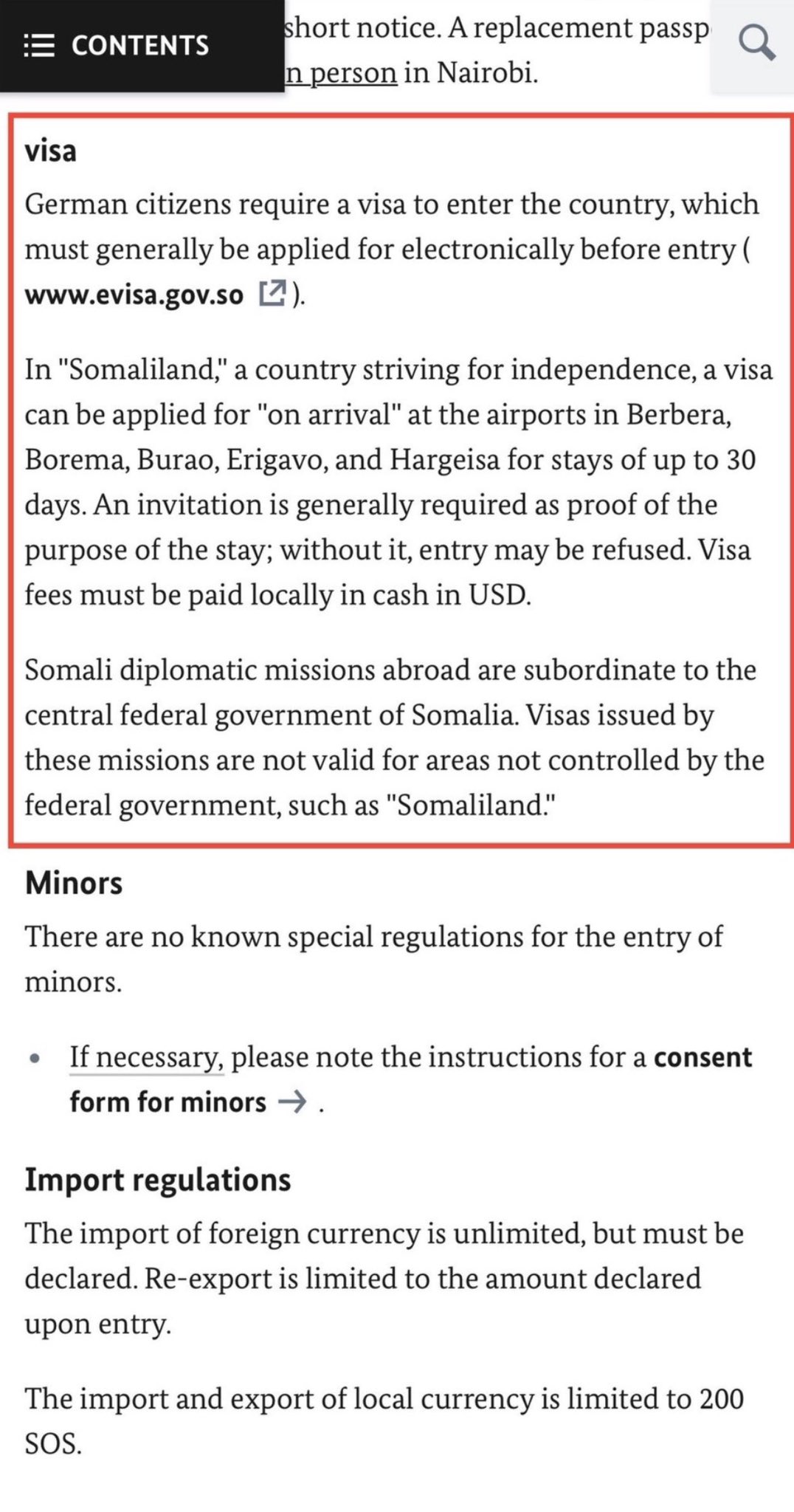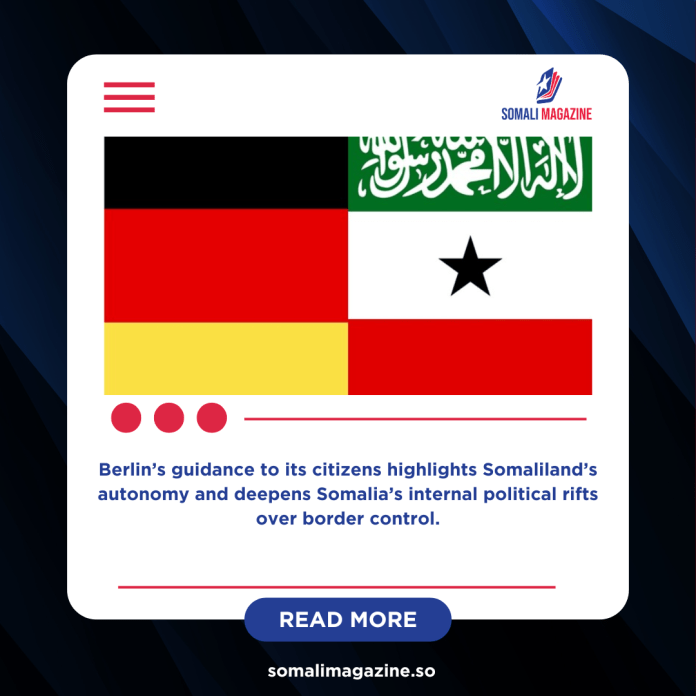Facebook Twitter (X) Instagram Somali Magazine - People's Magazine
Germany has taken a step that has stirred debate in the Horn of Africa by officially recognizing Somaliland’s separate visa procedures. The German Federal Office for Migration this week told its citizens that if they plan to visit Somaliland, they must follow visa rules set by authorities in Hargeisa, not Somalia’s federal government.
This means that Germans traveling to Somaliland can continue to get permits on arrival at airports in Hargeisa, Berbera, Borama, Burao, and Erigavo. These permits are valid for up to 30 days and usually require a local invitation letter, with payments made in U.S. dollars. For Berlin, this was a straightforward clarification meant to guide travelers. But in Mogadishu, it was viewed by many as a political blow and a challenge to the federal government’s authority.
The development comes just weeks after Somalia launched its new electronic visa platform on September 1. The federal government hailed the system as a modern solution to tighten border controls, raise revenue, and send a signal to investors and tourists that Somalia is moving forward. Internal Security Minister Abdullahi Sheikh Ismail Fartaag described it as a leap toward stronger governance and financial oversight.
However, the rollout has deepened Somalia’s already fragile political divides. Somaliland, which has governed itself independently since 1991 but is still not recognized internationally, quickly rejected the new system. Its Ministry of Civil Aviation reaffirmed that Somaliland would continue with its visa-on-arrival policy at Egal International Airport and other entry points. Civil Aviation Minister Fuad Ahmed Nuh defended the decision, saying it supports regional connectivity, easier travel, and passenger convenience. He also warned airlines that only documents issued by Somaliland are valid for entry into its territory.
Puntland, another semi-autonomous region, also dismissed Mogadishu’s order, calling it illegal. Puntland’s Information Minister Mahmoud Aydiid Dirir argued that the federal government has no authority to regulate its airports without a negotiated agreement.
Faced with these objections, Somali Prime Minister Hamza Abdi Barre defended the federal government’s electronic system during a public question session. He said the centralized platform is essential for knowing who enters and exits the country. While acknowledging Puntland’s opposition, he insisted that it would eventually have to comply. Somaliland, he admitted, presented a different challenge. “Somaliland’s case is unique and we will address it through dialogue, but Puntland will have to accept the reality,” Barre said.
For Somaliland, Germany’s decision is being seen as a rare moment of acknowledgment from the international stage. Though it does not mean formal recognition of Somaliland’s independence, which Hargeisa has been pushing for since the collapse of Somalia’s central government in 1991, it does highlight the reality of divided authority. In practice, different regions of Somalia issue different travel documents, leaving foreign governments forced to choose which rules to follow simply to guide their own citizens.
Germany’s move shines a light on the messy question of Somali sovereignty. While Mogadishu insists on central control, regions like Somaliland and Puntland continue to operate with de facto independence. For travelers, it may be a matter of which visa stamp they need. For Somalia’s political future, it underscores the unresolved struggle over who has the right to decide.

